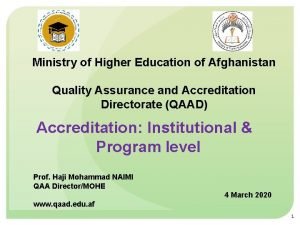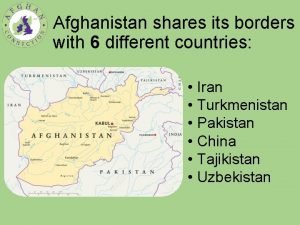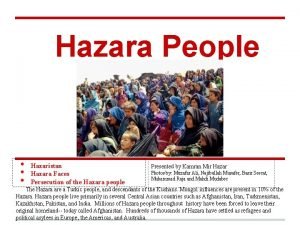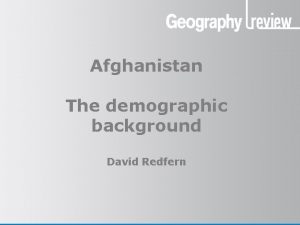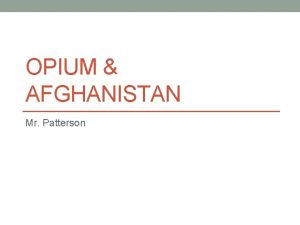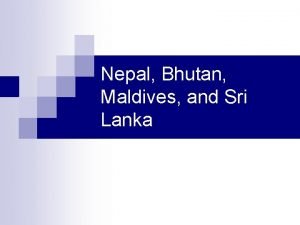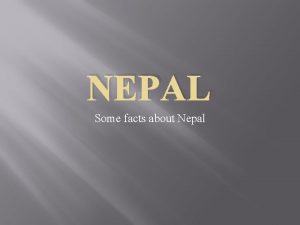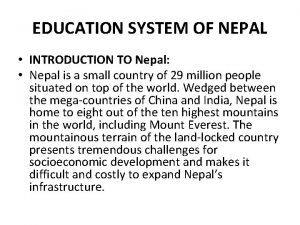Group 4 Afghanistan India Nepal PartnersPlayers Nepal Not





- Slides: 5

Group 4 Afghanistan, India, Nepal

Partners/Players • • • Nepal – Not currently known as UNGEI – but players are converging ; – Network for Girls’ Education- NGOs and INGOs, research agencies – individual and collective efforts are taken up; sharing of efforts ( eg; providing scholarships etc); this has recently been initiated. – Basket funding approach – Gender equity working group initiated at state and district level – Potential players – World Education, CARE ( f India – SSA – Central, State level - NPEGEL and KGBV – Partnerships exist between different players, coming together for a common worked with many partners at decentralized levels; varies across states and districts; e. g. ; state resource centre is being explored in UP ( SSA, MS, CARE, UNICEF) for state wide impact. – Mahila Samakhya – for NPEGEL and KGBV but also with larger agenda of women’s empowerment – Flagship of UNGEI ? Efforts operational in this direction with diverse partnerships – NCF – EGS – AIE – also addresses girls through varied strategies Afghanistan – TOR of a working group with government; invited partners (SCF, Human rights Commission, UNIFEM, CIDA, SIDA, AKF, CARE etc) – Small working group on situation analysis, ECD policy – Communication strategy for this issue

Added value of UNGEI • Nepal – Added funds due to working together with others – Increasing awareness and commitment to girls’ education – Capacity building; knowledge sharing • India ( not of UNGEI, more generic) – Models and methodologies - value of partnerships - eg; meena campaign, or transformative curricula, or back to school strategies – contribute to state and national plans – Events which examine good practices in girls’ education through a colloquium/reflective workshops with field practitioners of civil society, academics and government players; regular reviews of state level with other experts supporting • Afghanistan – – Different members have been taking up an active role, pooling of resources and expertise; sharing of experiences and participation in workshops with experts ; participation at regional level ( eg, girl champions) – Role of inactive players in the network may be reviewed

Synergy • Nepal • India – National Resource group for MS and KGBV is a multi stakeholder group; others players are part of reviews from time to time • Institutional synergies between non state players are weak. • Afghanistan – Trying to synergize the girls education plan developed by AGEI is owned by government; see it becoming like a national resource group

What next • Institutionalize national or/and state level UNGEI efforts • Increase ownership to the issue of girls’ education and making collective efforts • Strengthen synergy between UNGEI and GENIA • Clear TOR and work plan for regional UNGEI to be shared with country members and partners; dissme

